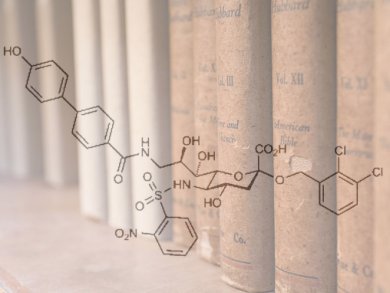B-Cell Lymphomas
Patients suffering from B-cell lymphomas can be treated with antibodies directed against the B-lymphocyte antigen CD20. This therapy is not a cure, however, and new treatments that kill B-cells through different mechanisms are required, especially for patients with indolent lymphoid malignancies. An alternative clinical target for B-cell lymphoma is CD22, a B-cell-specific member of the sialic acid binding Ig-like lectin (Siglec) family that recognizes α2,6-linked sialylated glycans as ligands. When it was demonstrated that B-cell activation can be down-regulated with sialosides, an intensive search for low-molecular-weight high-affinity ligands was initiated.
High-Affinity Antagonists
A collaborative research effort led by Beat Ernst and colleagues, University of Basel, Switzerland, has identified selective and high-affinity CD22 antagonists, and their results are reported in ChemMedChem. Using surface plasmon resonance, the team screened an existing library of antagonists (which were initially designed for another member of the Siglec family) for binding affinity toward CD22. The initial hit was then optimized to yield a series of CD22 antagonists with nanomolar binding affinity. Ernst’s research group will next examine the potential application of these CD22 antagonists in cell depletion therapy.
- From a Library of MAG Antagonists to Nanomolar CD22 Ligands
S. Mesch, K. Lemme, M. Wittwer, H. Koliwer-Brandl, O. Schwardt, S. Kelm, B. Ernst,
ChemMedChem 2011.
DOI: 10.1002/cmdc.201100407




